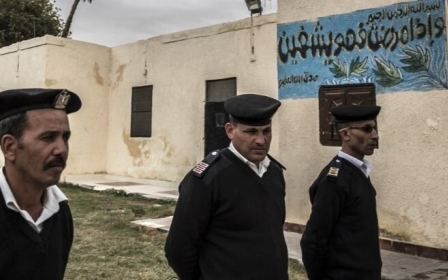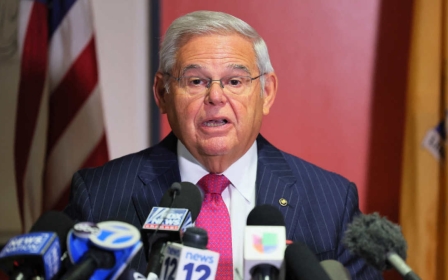Egypt: New US Senate Foreign Relations chair to block military aid over rights record

United States Foreign Relations committee chairman has said he will block some US military aid to Egypt until it takes "concrete, meaningful and sustainable steps" to improve human rights.
Ben Cardin, the new Senate Foreign Relations chairman, on Saturday said he plans to block a small portion of the US's more than $1bn in annual military aid to Egypt.
"It is imperative that we continue to hold the government of Egypt, and all governments, accountable for their human rights violations," Cardin said in a statement.
Cardin took over the role of chairman on one of the Sentate's most powerful committees after the former chairman, Senator Bob Menendez, was indicted alongside his wife on 22 September for allegedly accepting bribes to influence some US policy decisions in favour of the Egyptian government.
Before becoming chairman, Cardin had criticised US President Joe Biden's administration for choosing to override a human rights prohibition on $235m of this year’s military aid to Egypt.
Stay informed with MEE's newsletters
Sign up to get the latest alerts, insights and analysis, starting with Turkey Unpacked
Earlier this month, the Biden administration issued a waiver to move forward with the military financing despite concerns over Egypt’s human rights record.
On Friday, Representative Gregory Meeks, the top Democrat on the House Foreign Affairs Committee, sent a related request to the State Department, calling on the Biden administration to withhold $320m in military financing.
"Congress needs more clarity from the State Department on how concerns about treatment of political prisoners, journalists, as well as the rule of law are being tackled in our bilateral relationship," Meeks said at the time.
Egyptian President Abdelfattah el-Sisi, has cracked down on dissent ahead of the country's December presidential elections, according to the Egyptian Network of Human Rights (ENHR), with an estimated 65,000 political prisoners languishing in jails.
Sisi came to power in 2014, a year after leading a coup that toppled Egypt's first democratically elected president, Mohamed Morsi.
Meanwhile, the country is facing a severe economic crisis that has seen local currency lose half its value against the dollar, leading to record inflation and foreign currency shortages.
In August, annual inflation in Egypt reached close to 40 percent, according to official figures.
Middle East Eye delivers independent and unrivalled coverage and analysis of the Middle East, North Africa and beyond. To learn more about republishing this content and the associated fees, please fill out this form. More about MEE can be found here.




